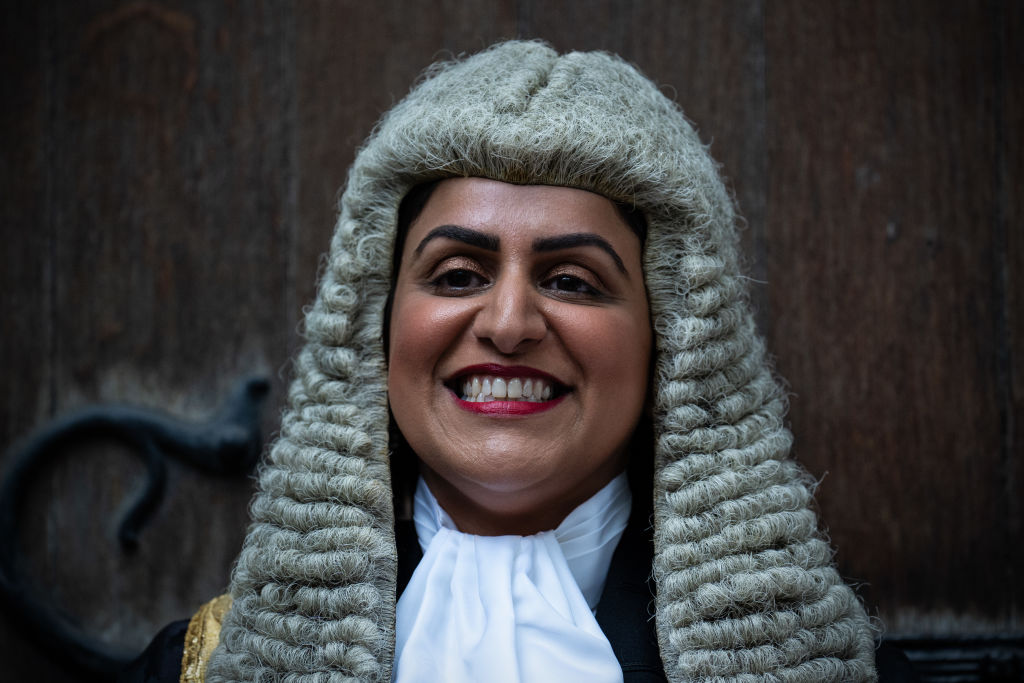There has been much attention over the past week over how new MPs have chosen to be sworn in. This new parliament is the most openly non-religious in history. Around 40 per cent of MPs, including the Prime Minister, chose to take the secular affirmation rather than a religious oath. Half the new Labour cabinet followed Sir Keir Starmer in doing so. But this afternoon one of his cabinet has made history doing the opposite. Shabana Mahmood has been sworn in as Justice Secretary. She is the second woman to take the role (Liz Truss was the first), and she is the first Muslim – taking her oath on the Quran. This is the first time this has happened.
In her speech Mahmood said:
In Chapter 3 Verse 135 of the Quran it says: ‘O ye who believe! Stand out firmly for justice, as witnesses to Allah. Even as against yourselves, or your parents, or your kin. And whether it be (against) rich or poor: For Allah can best protect both.’
This is the fundamental articulation of how we, as Muslims, view justice in how we deal with the world. It places justice above all else. Upholding justice is the ideal that has guided my life. It ties together both where my family came from, and the great nation we chose to call home. And so I will fight for it, every day.With the fierceness of many generations of small but mighty Kashmiri women. Inherited from my mother. And I will pursue the hard work of rebuilding our justice system. With the dogged determination I inherited from my dad. Who came to this country to make a new life for his family – and never took ‘no’ for an answer.
To swear this oath today is the greatest honour of my life. But, more even than that, it is the greatest of responsibilities. I will work tirelessly to discharge its duties and defend justice. Thank you.
Mahmood also referenced her upbringing as different to those who have come before here: ‘My parents weren’t steeped in Magna Carta, Habeas Corpus and the Bill of Rights – as I would one day be’. Instead her parents who arrived from ‘rural Kashmir’ found that they felt the country they arrived in was different – ‘queues must be observed, near religiously… but more seriously, there are institutions, like our courts, that are incorruptible.’
So, will Mahmood’s arrival and her background mean a material difference when it comes to the Ministry of Justice? Mahmood, like many of her predecessors, is an Oxbridge-educated lawyer so there are still plenty of similarities between her and those that came before. She has already risked a backlash in the media and among voters with her decision to allow early release of prisoners over fears on overcrowding.
When I interviewed her for my Women with Balls podcast, it was clear that her faith provides her with a moral compass and framework of values. She described it as ‘the absolute centre point of who I am… It’s the thing from which I draw my purpose in life and also my sense of identity.’ She criticised those who had attacked the SNP’s Kate Forbes for her religious views, suggesting her treatment had been ‘disgraceful’.
Mahmood suggested she was more socially conservative than many of her colleagues. She notably has differing views on conscience issues to many of the cabinet on the importance of biological sex and assisted dying. She told me: ‘I know some of the MPs who vocally support this issue think, “For God’s sake, we’re not a nation of granny killers, what’s wrong with you”… I feel that once you cross that line, you’ve crossed it forever. If it just becomes the norm that at a certain age or with certain diseases, you are now a bit of a burden… that’s a really dangerous position to be in.’ It means she is likely to be one of the strongest voices around the cabinet table on these issues in the coming years.







Comments